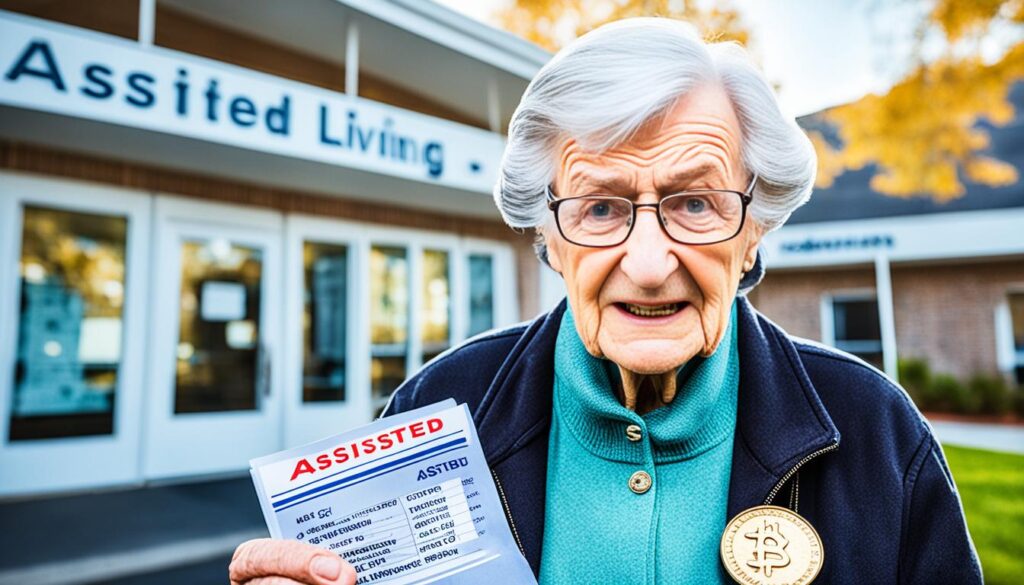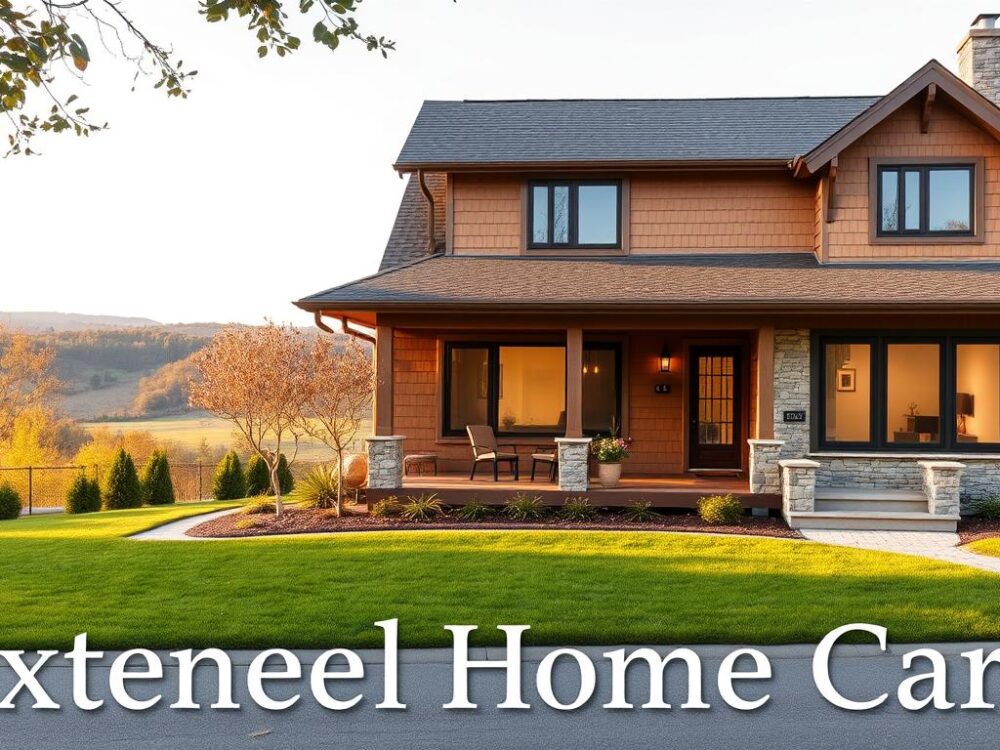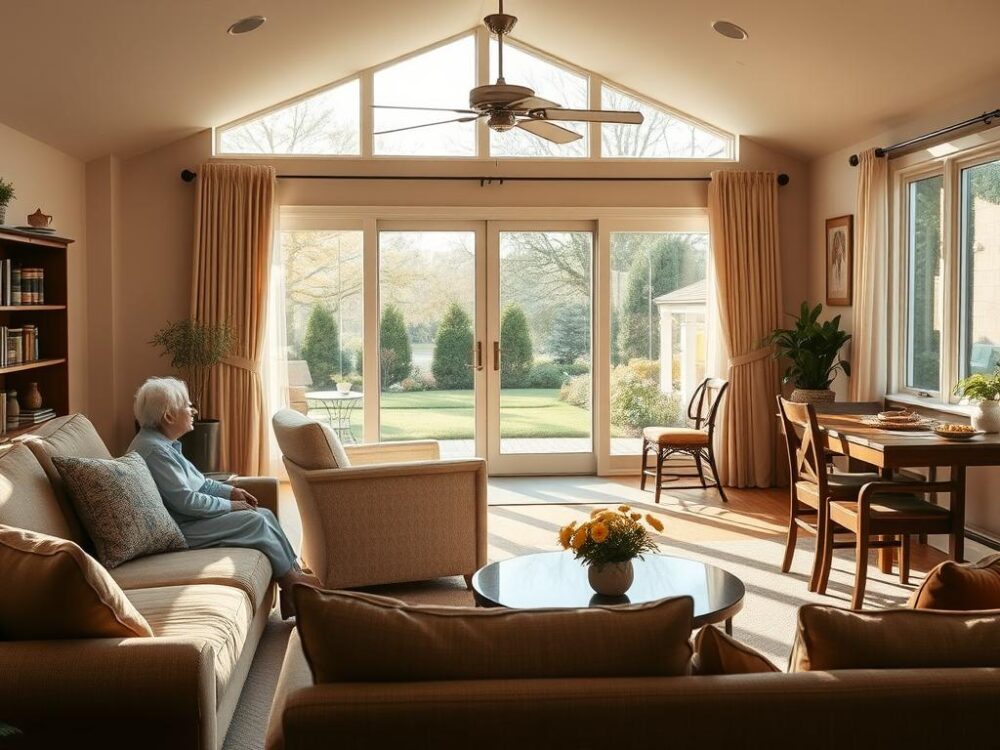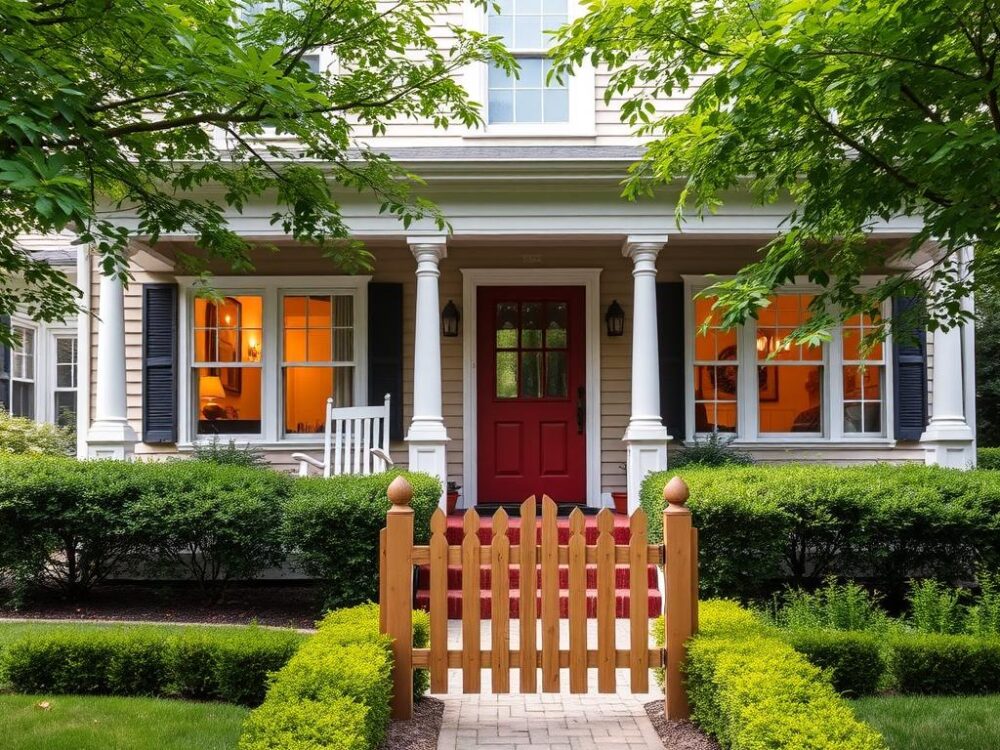
Compassionate Private Care Services for You
March 5, 2024
Find Assisted Living Facilities Near Me Now
March 5, 2024Welcome to our comprehensive guide on assisted living facilities near you that provide compassionate care for older adults. If you or your loved ones are in need of personalized support with daily activities, finding the right assisted living facility is crucial. These facilities offer a range of services to ensure residents receive the care they need while maintaining their independence. From assistance with dressing and bathing to medication management and meal preparation, assisted living facilities provide a compassionate environment for seniors to thrive.
Why Consider Assisted Living?
Assisted living communities offer a wide range of benefits for seniors and their families. One of the key advantages is the availability of staff 24/7, ensuring that residents receive the assistance and support they need at any time. This round-the-clock availability brings peace of mind to both residents and their loved ones.
In addition, assisted living communities provide a variety of on-site amenities that enhance the overall quality of life for residents. These amenities may include fitness centers, recreational areas, communal spaces, and more. With these offerings, residents have ample opportunities for socialization and engagement, fostering a sense of community and reducing feelings of loneliness or isolation.
One of the primary benefits of assisted living is the provision of tailored care. Each resident’s care plan is personalized to meet their specific needs and preferences. This individualized approach allows residents to maintain their independence while receiving support in areas where they require assistance. Whether it’s help with activities of daily living or specialized medical care, assisted living ensures that residents receive the right level of care tailored to their unique circumstances.
Another advantage of assisted living is the availability of assistance with household tasks. Residents no longer have to worry about the burden of home maintenance, such as cleaning, laundry, or household repairs. The dedicated staff takes care of these tasks, freeing up time and energy for residents to focus on other activities and hobbies they enjoy.
Services Offered in Assisted Living
Assisted living communities provide a wide range of services to ensure the well-being and comfort of their residents. These services are designed to meet the diverse needs of older adults and promote a fulfilling lifestyle. Some of the key services offered in assisted living facilities include:
- Personal Care Services: Assisted living facilities offer comprehensive personal care services to assist residents with their daily activities. Trained staff provide support with tasks such as dressing, bathing, grooming, and eating, ensuring that residents receive the assistance they need in a dignified manner.
- Laundry and Housekeeping: Maintaining a clean and hygienic living environment is important in assisted living facilities. Laundry and housekeeping services are provided to ensure that residents have well-maintained living spaces and clean clothing.
- Maintenance: Assisted living communities take care of maintenance needs both inside and outside the apartments. Facilities have dedicated maintenance staff who promptly address repairs and ensure that the property is well-maintained, creating a safe and comfortable living environment.
- Transportation: Transportation services are available to assist residents with outings and appointments. Whether it’s a medical appointment or a social event, residents can rely on the facility’s transportation services to conveniently reach their destinations.
- Social Activities and Events: Assisted living communities understand the importance of socialization and offer a variety of activities and events to promote engagement and connection among residents. These activities may include group outings, fitness classes, hobby clubs, and cultural events, providing opportunities for residents to socialize and pursue their interests.
- Health Care: While assisted living facilities are not medical facilities, they do provide certain health care services to support the well-being of residents. These services may include medication management, assistance with monitoring vital signs, and emergency first-aid response to ensure residents’ health needs are addressed promptly.
- Safety Measures: Assisted living communities prioritize the safety and security of their residents. They have safety measures in place, including 24/7 on-site staff availability, emergency response systems, and trained personnel to provide assistance during emergencies or unforeseen situations.
These services collectively contribute to creating a comfortable, supportive, and enriching environment for older adults in assisted living facilities.
What Is Assisted Living and How Does It Differ from Other Care Options?
Assisted living is a residential senior care option that provides personal care assistance and support to older adults. Unlike nursing homes or skilled nursing care facilities, assisted living does not offer skilled medical care. Instead, it focuses on assisting residents with activities of daily living while promoting independence.
In assisted living, residents receive help with tasks such as bathing, dressing, and managing medications. The facilities create a homelike environment where seniors can enjoy a sense of community and privacy. Assisted living arrangements generally include private apartments or rooms, communal dining areas, and a range of on-site amenities.
On the other hand, nursing homes or skilled nursing care facilities provide more intensive medical care. These facilities are designed for individuals with complex medical needs who require 24-hour skilled nursing services. In nursing homes, residents typically have medical conditions that require ongoing treatment, monitoring, and specialized care.
While assisted living offers personal care and support in a home-like setting, nursing homes have a stronger emphasis on medical care and supervision. Nursing homes have a higher staff-to-resident ratio and provide round-the-clock skilled nursing care, including administering medications, managing complex medical conditions, and providing medical interventions.
It’s important to consider the specific needs of the individual when choosing between assisted living and nursing homes or skilled nursing care facilities. Assisted living is better suited for individuals who require assistance with activities of daily living but do not need intensive medical care. Nursing homes or skilled nursing care facilities are more suitable for those with significant medical needs and require continuous skilled nursing services.
Overall, assisted living offers a supportive and inclusive environment that promotes independence and a sense of community, while nursing homes provide specialized medical care for individuals with complex medical conditions.

The Cost of Assisted Living
When considering assisted living for yourself or a loved one, it’s important to understand the cost involved. The average cost of assisted living in the United States is $4,774 per month. However, it’s essential to note that the cost can vary significantly depending on the state and region.
There are several factors that influence the cost of assisted living. The level of care needed plays a significant role in determining the expenses. Residents who require minimal assistance with activities of daily living, such as dressing and bathing, may have lower costs compared to those who need more comprehensive care.
The size and type of accommodation also impact the cost. Larger apartments or private rooms tend to be more expensive than shared accommodations. Additionally, the amenities and services offered by the facility contribute to the overall cost. Communities with extensive amenities such as swimming pools, fitness centers, and specialized care programs may have higher monthly fees.
Moreover, location plays a crucial role in determining the cost of assisted living. The cost variations between states can be significant. For example, the average monthly cost of assisted living in Alaska is around $7,000, while it’s approximately $3,000 in Oklahoma. The cost of living in a particular region can also influence the overall cost of assisted living in that area.
When considering the financial aspect of assisted living, it’s important to evaluate the budget and available resources. Some individuals may have long-term care insurance policies that can help cover the expenses. Additionally, government assistance programs, such as Medicaid, may be available for eligible individuals. Personal savings and investments can also be used to pay for assisted living.
It’s essential to research and compare different facilities to find one that fits within your budget and offers the level of care and amenities required. Visiting the facilities, reviewing their financial policies, and discussing any additional costs or fees is crucial before making a decision.
Choosing the right assisted living community involves considering the cost along with other factors such as location, services, and staff qualifications. By thoroughly researching and understanding the financial implications, you can make an informed decision that best meets your needs and preferences.
How to Choose an Assisted Living Facility
When it comes to choosing an assisted living facility, there are several factors to consider to ensure the best possible care and support for your loved one. These factors include the location, services and amenities offered, the qualifications of the staff, the facility’s reputation, and the cost.
Location: Consider the location of the facility in relation to family visits and access to healthcare facilities. It’s important to choose a facility that is conveniently located to make visiting your loved one easier while also ensuring prompt access to medical care when needed.
Services and Amenities: Evaluate the services and amenities provided by the facility to ensure they align with the needs and preferences of your loved one. This can include personal care services, housekeeping, meal options, transportation, social activities, and access to healthcare services.
Staff Qualifications: The qualifications and expertise of the staff are crucial in delivering quality care. Inquire about the training and certifications of the caregivers and staff members who will be responsible for the well-being and support of your loved one. It’s essential to ensure they have the necessary skills and experience to provide the level of care required.
Reputation: Check the facility’s reputation by reading reviews and seeking recommendations from individuals who have firsthand experience with the facility. This can provide valuable insights into the quality of care, the staff’s professionalism, and the overall satisfaction of the residents and their families.
Cost: Assess the cost of the facility based on the services and amenities provided, as well as your loved one’s budget and financial resources. Inquire about any additional fees or expenses that may not be included in the base cost. It’s important to have a clear understanding of the expenses involved to ensure they are manageable and sustainable.
By carefully considering these factors, you can make an informed decision and choose an assisted living facility that meets the needs and preferences of your loved one while providing a safe, supportive, and compassionate environment.
Benefits of Assisted Living for Seniors and Families
Assisted living provides numerous benefits for both seniors and their families. The first advantage is the peace of mind that comes with knowing that assistance is available 24/7. Seniors can rely on the support and care provided by the dedicated staff, ensuring their safety and well-being at all times.
Assisted living communities also offer socialization opportunities, which are vital for seniors’ mental and emotional well-being. Residents have the chance to interact with fellow residents and engage in various activities, reducing loneliness and isolation. These social connections foster a sense of belonging and community, enhancing overall quality of life.
Furthermore, assisted living helps to reduce the caregiving burden on families. Family members no longer have to bear the sole responsibility of providing care for their loved ones. Instead, trained professionals handle daily tasks, such as medication management and personal care assistance. This allows families to spend more quality time together, creating meaningful memories and strengthening their relationships.
Finding Assisted Living Facilities Near Me
When it comes to finding assisted living facilities near you, there are several resources available to make your search easier. Online directories offer a comprehensive list of facilities in your area, allowing you to compare and research different options. These directories provide detailed information about each facility, including services offered, amenities, and contact information.
In addition to online directories, senior living advisors can provide personalized recommendations based on your specific needs and preferences. These advisors have extensive knowledge and experience in the senior care industry and can offer valuable insights to help you make an informed decision.
Reviews and recommendations from other families who have had experiences with assisted living facilities can also be valuable in your search. Hearing firsthand accounts from individuals who have had loved ones in these facilities can provide a unique perspective and help you gauge the quality of care and services provided.
It’s important to conduct thorough research and visit multiple facilities before making a decision. By visiting different facilities, you can get a feel for the atmosphere, interact with staff and residents, and assess the suitability of each facility for your needs.
By utilizing online directories, seeking recommendations from senior living advisors, and considering reviews from other families, you can find the assisted living facility that best meets your needs and provides the compassionate care you are seeking.
Questions to Ask When Touring Assisted Living Facilities
When considering assisted living facilities, it’s essential to gather all the necessary information. Asking the right questions during your tour can help you make an informed decision. Here are some important questions to ask:
1. Staffing Ratios:
What is the staff-to-resident ratio? Ensuring an adequate number of staff members will help guarantee that residents receive the attention and care they require.
2. Training and Qualifications:
What are the qualifications and training requirements for the staff? It’s crucial to know if the caregivers are trained in providing personalized care and if they have the necessary certifications and expertise.
3. Emergency Procedures:
What are the emergency protocols in place? Inquire about the facility’s emergency response procedures, including evacuation plans and staff training for emergencies.
4. Activities and Social Programs:
What activities and social programs are available for residents? Engaging activities contribute to a fulfilling lifestyle. Inquire about the variety of activities offered and how they cater to residents’ interests and preferences.
5. Medication Management:
How is medication management handled? Understanding the process for medication administration, storage, and monitoring will provide peace of mind that your loved one’s medication needs will be properly addressed.
6. Meal Options:
What meal options are available? Inquire about the variety of meals offered and any accommodations for specific dietary needs or preferences.
7. Transportation Services:
Is transportation provided for medical appointments or outings? Ensure that transportation services are available for residents who may require assistance with transportation to appointments or social activities.
8. Additional Costs or Fees:
Are there any additional costs or fees beyond the monthly fee? Understanding the financial aspect is crucial to ensure there are no unexpected expenses that may strain your budget.
Remember to take notes and ask for any written materials that may provide additional information.
Asking these questions will help you gain a comprehensive understanding of the assisted living facility’s operations, ensuring that it aligns with your expectations and the specific needs of your loved one.
Paying for Assisted Living
When it comes to paying for assisted living, there are several options to consider. The cost of assisted living can vary depending on factors such as location, services provided, and the level of care needed. To help cover the costs, individuals can explore different financial strategies and assistance programs.
Cost-Saving Measures
Some assisted living facilities offer cost-saving measures to help make the expenses more manageable. These measures may include shared living arrangements, where residents can split the cost of rent and utilities. Additionally, facilities may offer discounted rates or specials for certain time periods.
Long-Term Care Insurance
Long-term care insurance is designed to help individuals cover the costs of assisted living and other long-term care services. By paying regular premiums, policyholders can have coverage for a range of services, including assisted living. It’s important to carefully review the policy terms and understand what expenses are covered.
Government Assistance Programs
Government assistance programs, such as Medicaid, can provide financial support for qualified individuals who need assistance with paying for assisted living. Eligibility requirements may vary by state, and it’s important to check the specific guidelines and application process. These programs can help alleviate the financial burden of assisted living costs.
Personal Savings and Investments
Personal savings and investments can also be utilized to pay for assisted living. Individuals who have built up savings or have investment portfolios can allocate funds toward the cost of care. It’s important to consider the long-term affordability and ensure that sufficient funds are available to cover ongoing expenses.
Exploring different payment options and consulting with financial advisors can help individuals and their families navigate the financial aspects of assisted living. By considering cost-saving measures, long-term care insurance, government assistance programs, and personal savings, individuals can find a viable solution to finance their assisted living needs.

Conclusion
Assisted living facilities provide compassionate care and support for older adults who may need assistance with daily activities. These facilities offer a range of services and amenities to promote independence and socialization.
When choosing an assisted living facility, it’s important to consider several factors. The location should be convenient and accessible for family visits and necessary healthcare facilities. The services provided should align with the individual’s needs and preferences. The qualifications and expertise of the staff play a crucial role in ensuring quality care. Checking the facility’s reputation through reviews and recommendations can provide valuable insights. Lastly, the cost should be assessed based on the services and amenities provided, as well as the individual’s budget and financial resources.
Assisted living offers numerous benefits for seniors and their families. Seniors can enjoy peace of mind knowing that assistance is available 24/7 and have access to a supportive community. Assisted living communities provide opportunities for socialization and engagement, reducing feelings of loneliness and isolation. For families, assisted living reduces the caregiving burden, allowing for more quality time with loved ones and relieving the responsibilities of day-to-day care.
In summary, assisted living can be a valuable solution for older adults in need of support. By considering the key factors and advantages, individuals and their families can make an informed decision and find the right assisted living facility that meets their needs and promotes a high quality of life.
FAQ
What services do assisted living facilities offer?
Assisted living facilities offer personal care services such as assistance with dressing, bathing, and eating. They also provide laundry and housekeeping services, transportation, social activities, and some health care services.
What is the difference between assisted living and nursing homes?
Assisted living focuses on assisting residents with activities of daily living while promoting independence. Nursing homes provide more intensive medical care and support for individuals with complex medical needs.
How much does assisted living cost?
The cost of assisted living varies depending on location and specific services. On average, the cost in the United States is $4,774 per month. Factors such as level of care, accommodation, and location can influence the cost.
What should I consider when choosing an assisted living facility?
Factors to consider include location, services and amenities, staff qualifications, reputation, and cost.
What are the benefits of assisted living for seniors and their families?
Seniors can enjoy peace of mind knowing assistance is available 24/7 and access to a supportive community. Assisted living also provides opportunities for socialization and reduces the caregiving burden for families.
How can I find assisted living facilities near me?
You can find assisted living facilities near you through online directories, senior living advisors, and by reading reviews and recommendations from other families.
What questions should I ask when touring assisted living facilities?
It’s important to ask about staffing ratios, staff qualifications, emergency procedures, activities and social programs, and any additional costs or fees.
How can I pay for assisted living?
Payment options include long-term care insurance, government assistance programs, personal savings and investments, and cost-saving measures provided by some facilities.




